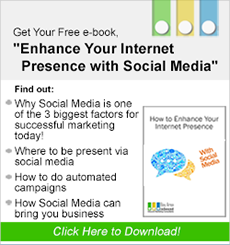 It seems like I keep reading that every blog article should be perfection and should generate a lot of buzz or it's not worth writing.
It seems like I keep reading that every blog article should be perfection and should generate a lot of buzz or it's not worth writing.
Let me just set the record straight. That is a load of horse manure. The author of that kind of blogging advice simply doesn't understand the reason for blogging or anything about SEO. They haven't seen blogging as a strategy be tremendously successful for increasing revenue; I have.
Blog articles aren't press releases that need to be perfected nor do you need to hire an agency to get them picked up to obtain reach, although it never hurts to have more people working on promoting one article.
The purpose of blog articles is that they live on your website, they drive relevant traffic, and they educate your audience on your products, services and maybe market trends. Ocassionally, it's nice to do something personal on your Executives or employees so customers get to know the people behind the brand. Really, there as many reasons to blog as there are bloggers out there, but for my client's purposes, blog articles are just another channel to increase leads and sales.
As a demand generation marketing consultant I've worked at seven tech startups in the last seven years. Hands down, the company where I was able to increase their leads and sales most quickly, by creating educational offers that draw people in and answer questions in the sales funnel, was the company that had hired a marketing consultant to blog for only one quarter the year before I arrived.
 Real-World Example Number One
Real-World Example Number One
The company wasn't putting out perfect articles that were "generating a lot of buzz". Their articles were "How to..." technical articles that were attracting the exact people that needed their products to solve real-world problems.
One of those articles had 33,000 reads and 12 comments from their prospects who worked in Information Technology (IT). The title asked a simple networking question: "What's the difference between a group and a ----?". Yes, you read that right, it had 33,000 reads on it that I could see in hubspot analytics. There were nine more in descending order that answered similiar questions, I think the next highest was 27,000 reads. Obviously, a lot of people out there had the same question and were looking for an answer, ha.
Blogging Properly for SEO
Guess what, if someone is searching on google for an answer to a problem in order to get their job done, and it is a problem that your products solve, your chances are high of selling them on your products or services when you attract a customer to your website with this type of informational blog article. That is called organic search when they find your site simply because it matches the description they type into the search engine. To increase your chances of selling to the prospect that found you via organic search, just insert a CTA button with an educational offer into the blog article to capture lead contact info, then return email the educational offer they signed up for. Later send them more educational offers via a lead-nurturing drip campaign.
While it isn't important to get the text perfect or hire someone to get it picked up on the wire, it is important to get the SEO right so google will rank you number one when prospects are searching for your solutions.
Tagging for SEO
- You must tag the article with targeted keywords, in our example above, the long-tail keywords would be: "What's the difference between a group and a _______?"
- Have Keywords in your H1 (title) and H2 (subtitle) Headers
- Keywords in the text
- Keywords in the alt-text descriptions for graphics
- Keywords in the meta description
I've done the same thing at seven companies. I try to get them all blogging properly for SEO by setting up a template in their blogging program that reminds them what they need to do each time they create an article and teach them to tag everything properly as outlined above, unless they have Hubspot Marketing Automation Software and are hosting thier blog; Hubspot blogging tool will flag the errors if they fail to do all the proper tagging.
 Sharing Blog Articles to Get Reach
Sharing Blog Articles to Get Reach
Once articles are published, I always have my clients have all their employees go across the top and click to share the articles on all their social media. This gives them a lot of SEO juice by obtaining a lot more reads, likes, and shares which, again, are important in the google algorithm to be brought to the top of an organic search.
If client employees are in the Sales Department, chances are they are connected via social media to a lot of prospects and sharing articles is a great way to shorten the sales cycle. It's a good idea to drop your articles into targeted groups on Linkedin, Tumblr, and Reddit to get a lot of reads and shares.
Real-World Example Number Two
Another example, I was using google to search for "inbound vs. outbound marketing" because of my interviewing process as a marketing consultant. The answer to my search brought me to an article on inbound vs. outbound marketing on Hubspot. I came onto their articles a few more times while searching and I clicked a link to see a video about Hubspot's all-inclusive-inbound-marketing software.
Right then, I was ready to buy their SaaS for $3,000 a year and their training for $1,200 even though money was tight for me since I stayed home to raise our twins for eight years. In watching Hubspot's educational video, I realized there were a lot of new things in marketing that I needed to know and to be able to do and their software was going to help me do it.
No one can cold-call me and pitch me anything that I will buy, because I'm like the rest of the world, tired of being bombarded with messages I don't want. I can say, "No and please take me off your call list" with the best of them. Like anyone these days, I like to search for and find what I need on my own. Using proper SEO, keywording, and page density to back that up, is how you "get found."
 Build Community and Brand
Build Community and Brand
When a customer has a problem and they search for an answer and they keep landing on your blog, they will continue to come to you for answers. They will consider you to be the experts and they build a community around your blog and more importantly, your brand. They share your articles on social media, often just so they remember where they read the articles so they can refer back to them, which is a recommendation to their friends. They comment and get discussions going because they are truly engaged in what you are selling.
Blog Articles- Considered as Reliable as a Word-of-Mouth Referral
As a consultant, I can share articles directly on to social media so my contacts get an idea of what I do and it reminds them what I do every time I post a new article, so it stays fresh in their mind. For my clients, I sometimes purchase more followers in their target audience, that way, when I share articles or offers on social media, they get many more downloads and leads. When prospects have budget and are finally in the market it is fresh in their mind who to call for the product or service that they are ready to buy. I have picked up clients this way a lot myself. There is a statistic in the Hubspot State of Inbound Marketing Report that states: "Most companies say they have gotten at least one sale due to blogging." Most of us have done a lot better than that with our blog.
Page Density and It's Relationship to SEO
Having a lot of articles proplerly tagged with the same keywords about your company's area of expertise will increase "page density" which is one of the big factors that the google algorithm uses when determining which url to bring to the top of the list in an organic search for a particular keyword. Most sites get the bulk of their pages from their blog. For example, I probably have a 70-page site because I have a 40-page with eight tabs across the top and three drop down menus with ~12 each pages and landing pages. However, if you add my blog, I have closer to a 300-page website. And all those pages are tagged with my target keywords.
 What if My Competitor Has a Huge Blog? How Do I Get Heard Above the Noise?
What if My Competitor Has a Huge Blog? How Do I Get Heard Above the Noise?
Well I hope you aren't trying to go head-to-head with an established competitor. I hope you have segmented and are the best at some niche in the space so you can win and can blog about it with a long-tail keyword strategy. Meaning, if prospects are looking for "Security Software" they might go for your competitor who already has a lot of pages, but if they are looking for "Security Software to Stop Bot Attacks" they will find you because you have blogged and tagged with the long-tail specific keywords: "Security Software to Stop Bot Attacks".
Niche Marketing and Longer-Tail Keyword Strategy
What if you and your competitor manufacture "security software for bot attacks"? Well, what is your positioning? Is yours better because you use "fingerprinting" to match users and machine learning to detect anomolies to identify non-human threats across all platforms including mobile devices instead of just using a firewall like your competitors? Then keyword it: "security software for bot attacks on mobile devices", "anomoly detection software for bot attacks". You get the idea.
So you see there are a lot of great reasons to blog besides getting picked up on the wire and "creating a lot of buzz," such as increasing company revenue, which is always my bottom-line.
I'm pretty sure the people who are spreading the rumor that "every article has to be amazing and generate a lot of buzz" are the same people selling you those services, just a thought.
-------------------------------------------------
Laurie is a Demand Generation and Digital Marketing Consultant in the SF Bay Area that specializes in increasing leads and revenue for technology companies.
For more information, please contact Laurie at Bay Area Inbound at or Laurie@BayAreaInbound.com
